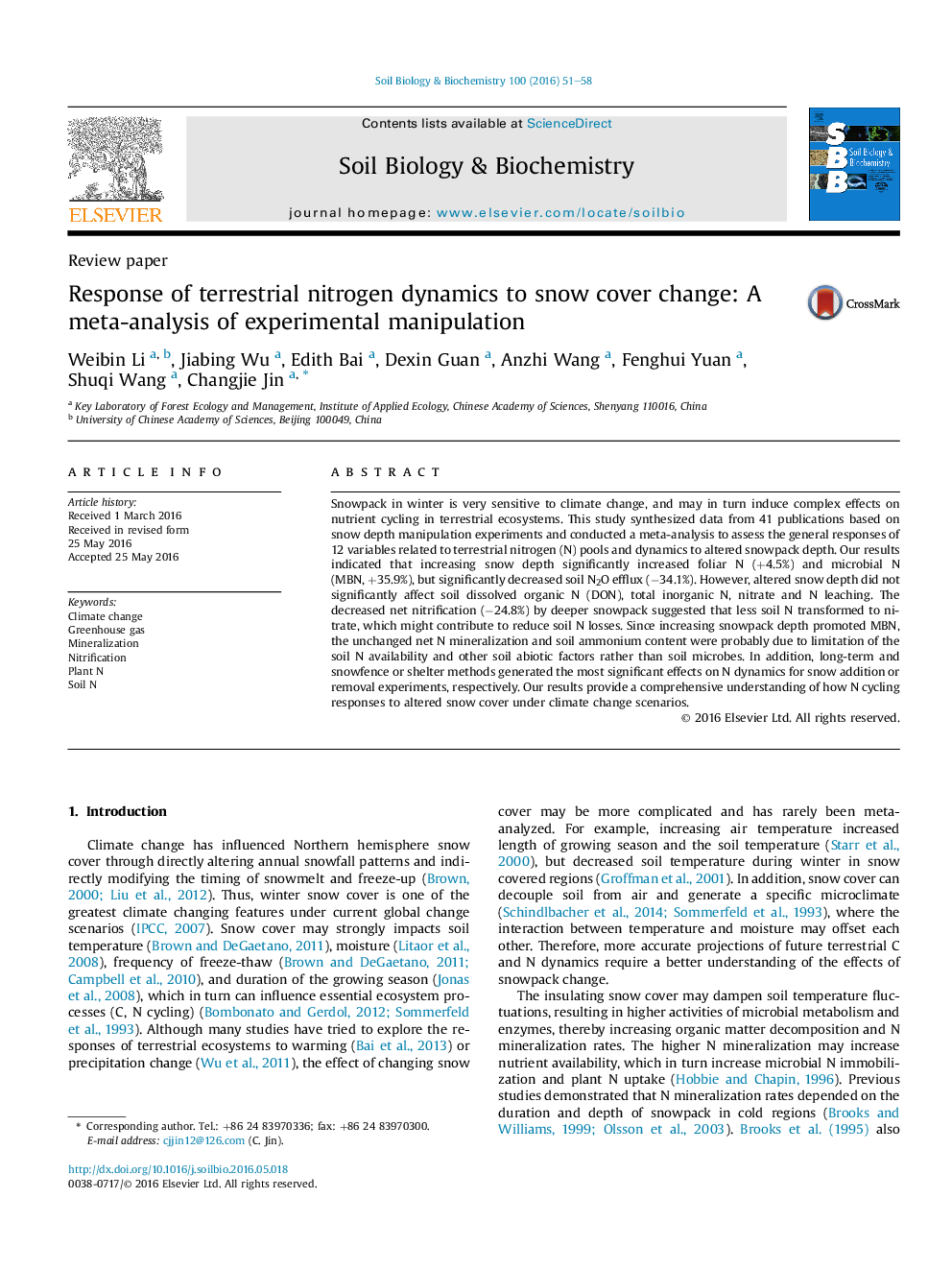| Article ID | Journal | Published Year | Pages | File Type |
|---|---|---|---|---|
| 8363443 | Soil Biology and Biochemistry | 2016 | 8 Pages |
Abstract
Snowpack in winter is very sensitive to climate change, and may in turn induce complex effects on nutrient cycling in terrestrial ecosystems. This study synthesized data from 41 publications based on snow depth manipulation experiments and conducted a meta-analysis to assess the general responses of 12 variables related to terrestrial nitrogen (N) pools and dynamics to altered snowpack depth. Our results indicated that increasing snow depth significantly increased foliar N (+4.5%) and microbial N (MBN, +35.9%), but significantly decreased soil N2O efflux (â34.1%). However, altered snow depth did not significantly affect soil dissolved organic N (DON), total inorganic N, nitrate and N leaching. The decreased net nitrification (â24.8%) by deeper snowpack suggested that less soil N transformed to nitrate, which might contribute to reduce soil N losses. Since increasing snowpack depth promoted MBN, the unchanged net N mineralization and soil ammonium content were probably due to limitation of the soil N availability and other soil abiotic factors rather than soil microbes. In addition, long-term and snowfence or shelter methods generated the most significant effects on N dynamics for snow addition or removal experiments, respectively. Our results provide a comprehensive understanding of how N cycling responses to altered snow cover under climate change scenarios.
Related Topics
Life Sciences
Agricultural and Biological Sciences
Soil Science
Authors
Weibin Li, Jiabing Wu, Edith Bai, Dexin Guan, Anzhi Wang, Fenghui Yuan, Shuqi Wang, Changjie Jin,
